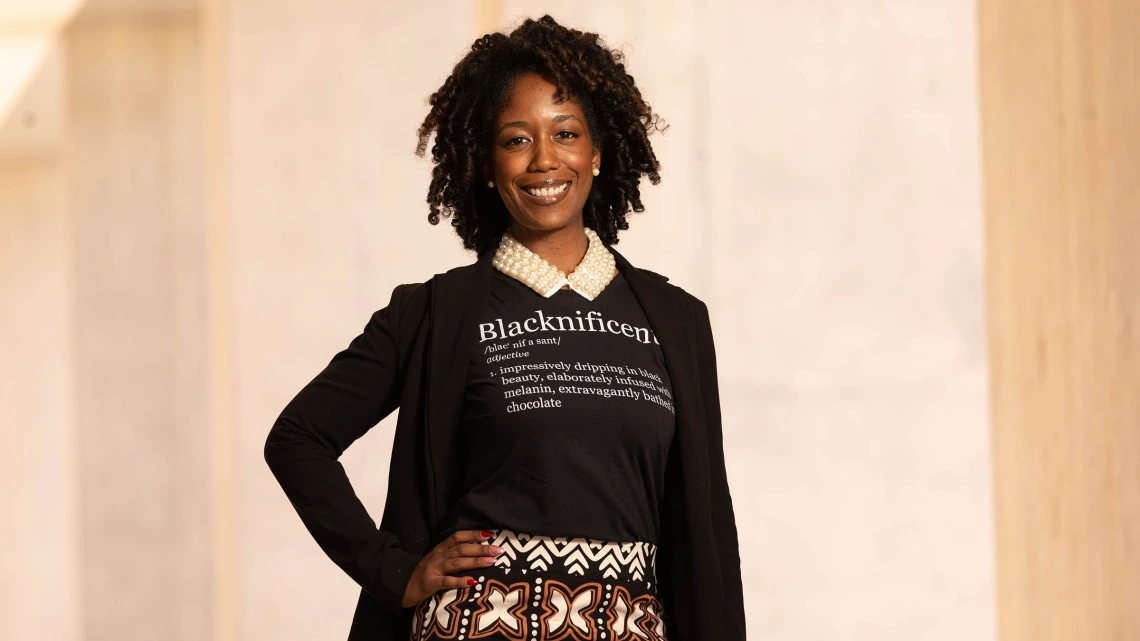Kelly Palmer Appointed as Assistant Director of Diversity at UArizona Cancer Center

Kelly Palmer, PhD, MHS, CCRP has been appointed as Assistant Director of Inclusivity, Diversity, Equity and Accessibility (IDEA) for the University of Arizona Cancer Center (UACC). This position will work collaboratively with the Associate Director, Jennifer Hatcher, PhD, MPH, MSN to develop awareness, and knowledge that contribute to enduring structural change at the UACC. Palmer is also Associate Director of the University of Arizona Health Sciences Center for Health Disparities Research and an Assistant Professor at the University of Arizona Mel and Enid Zuckerman College of Public Health.
“Dr. Palmer is not only enthusiastic about taking on this responsibility, she’s also spent her academic career working to become the perfect person for the job,” Hatcher said. “I have no doubt that we will do great things for the people in our catchment area through IDEA, and I also know that we can be a positive influence for change across the nation.”
In reference to establishing an office of Diversity, Equity and Inclusion, University of Arizona Cancer Center Director, Joann Sweasy, said that diversity is the number one priority for the UACC. “We need a diverse team of researchers and support staff at the Cancer Center,” Sweasy said. “Serving our catchment area well and addressing its specific needs is imperative, and our staff should be reflective of the population we serve.”
Palmer’s research seeks better ways to engage with underserved populations, particularly Black women, in cancer screening, intervention, and research. While the black population in the Cancer Center’s catchment area is smaller than the national average, it is underserved by the health care system and more adversely affected by cancer compared to the general population. Palmer’s work examines the experiences of racial and ethnic minority patients and the related social and political determinates of cancer health disparities.
“When we look at health disparities we see a direct correlation to socioeconomic status, race and ethnicity,” Palmer said. “A big part of cancer prevention is understanding how best to communicate with people.” She also said that some political determinants of health may relate to the distrust that many people have for institutions and authorities that have historically not served minorities well. “Public health authorities and institutions need to do the necessary work to establish trust and ways of communicating that meet communities that have been historically marginalized in places where they feel secure,” Palmer said.
The University of Arizona Cancer Center’s catchment area is unique in comparison to the rest of the nation in that it is about 40% Hispanic, which is substantially higher when compared to the rest of the country. The region is also home to more Native Americans and Indigenous persons when compared to the United States at large. Sweasy said these factors make the University of Arizona Cancer Center’s location ideal for doing research with potential to beneficially impact underserved populations all over the country. “We’re excited to have Dr. Palmer and Dr. Hatcher on board to lead Diversity, Equity, and Inclusion at the Cancer Center,” Sweasy said.



